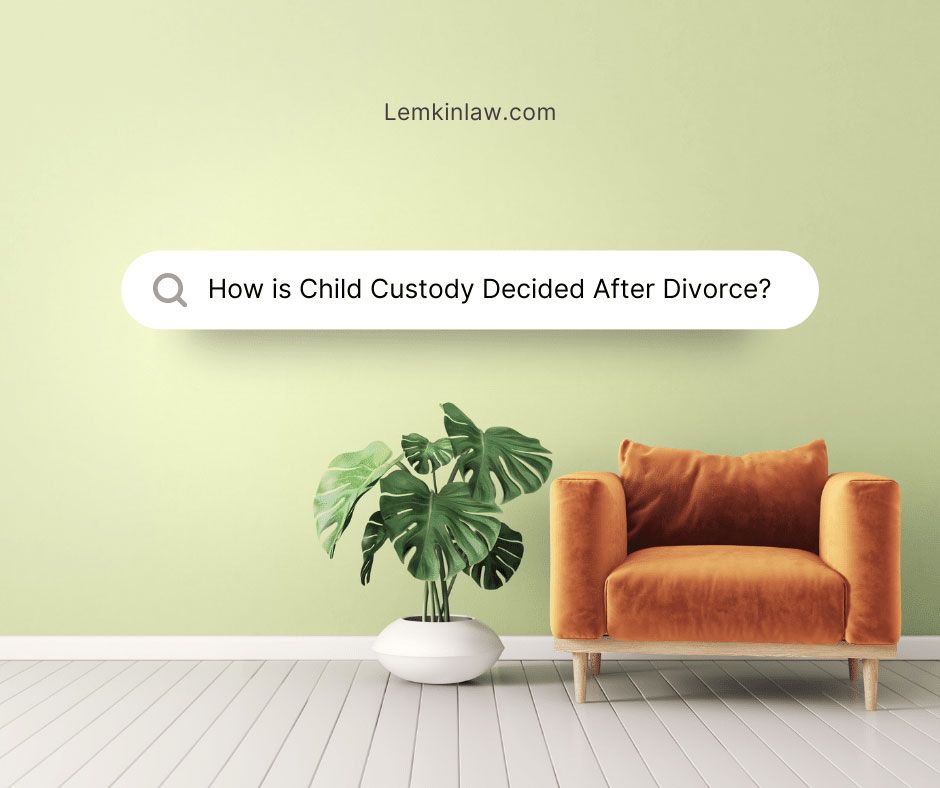How is Child Custody Decided After Divorce?
Child Custody is not a one size fits all or a one and done decision. It’s a process, let’s get into it.
Child custody matters are typically decided during the divorce process. A court will make determinations regarding custody arrangements and child support matters that will take effect with the divorce decree. Courts will use the legal construct known as the “best interest of the child” on which to base their decisions, and their decisions will be final. However, there are some circumstances under which child custody matters may be modified following a divorce.
Types of Child Custody
This brief overview defines the different types of parental rights and custody options that a court will decide both during the divorce process and for any child custody modifications following a divorce.
- Physical Custody: A parent has the right to have the child physically with them for a period.
- Legal Custody: A parent has the right to make legal, medical or other important life decisions with respect to their child.
- Joint Custody: Joint custody may refer to either physical custody, legal custody or both, and is where both parents have legal rights.
- Sole Custody: Sole custody is when only one parent has the legal right to either legal custody, physical custody, or both.
Changes to Child Custody After a Divorce
There are several reasons that a court may consider changing child custody decisions after a divorce.
- Changes in Physical and/or Emotional Stability of One Parent
Child custody may be decided differently following a divorce and modified under the law if one parent alerts the court to any of the following circumstances:
- One parent has abused either alcohol or drugs
- One parent has excessive and frequent revolving relationships and/or marriages
- One parent frequently chances jobs
- One parent has an unpredictable employment schedule
- One parent has shown evidence of mental instability
- One parent has physically or emotionally abused the child
- One parent has continuously moved and failed to provide a stable home for the child
- One parent has failed to allow the other parent visitation according to the divorce decree
- Changes in the Academic, Emotional, or Physical Needs of the Child
As children age, their academic, emotional and physical needs change. Child custody may be changed after a divorce if evidence proves that a modification in the child custody arrangements would now be in the best interest of the child at this older age.
- Changes in Physical Location
Sometimes a parent may marry a person in another location or need to move to another location for employment reasons. If there is ever a change in location, a child custody arrangement made may be modified after a divorce to reflect this changed situation.
Contact an Experienced Family Law Attorney
If you have experienced a divorce and are now considering changing either physical custody or legal custody of your child, you should visit with an experienced family law attorney to ensure that your legal rights are protected. Contact an experienced divorce and family law attorney at the Law Offices of Hollie A. Lemkin at (949) 734-7300 or online today.





